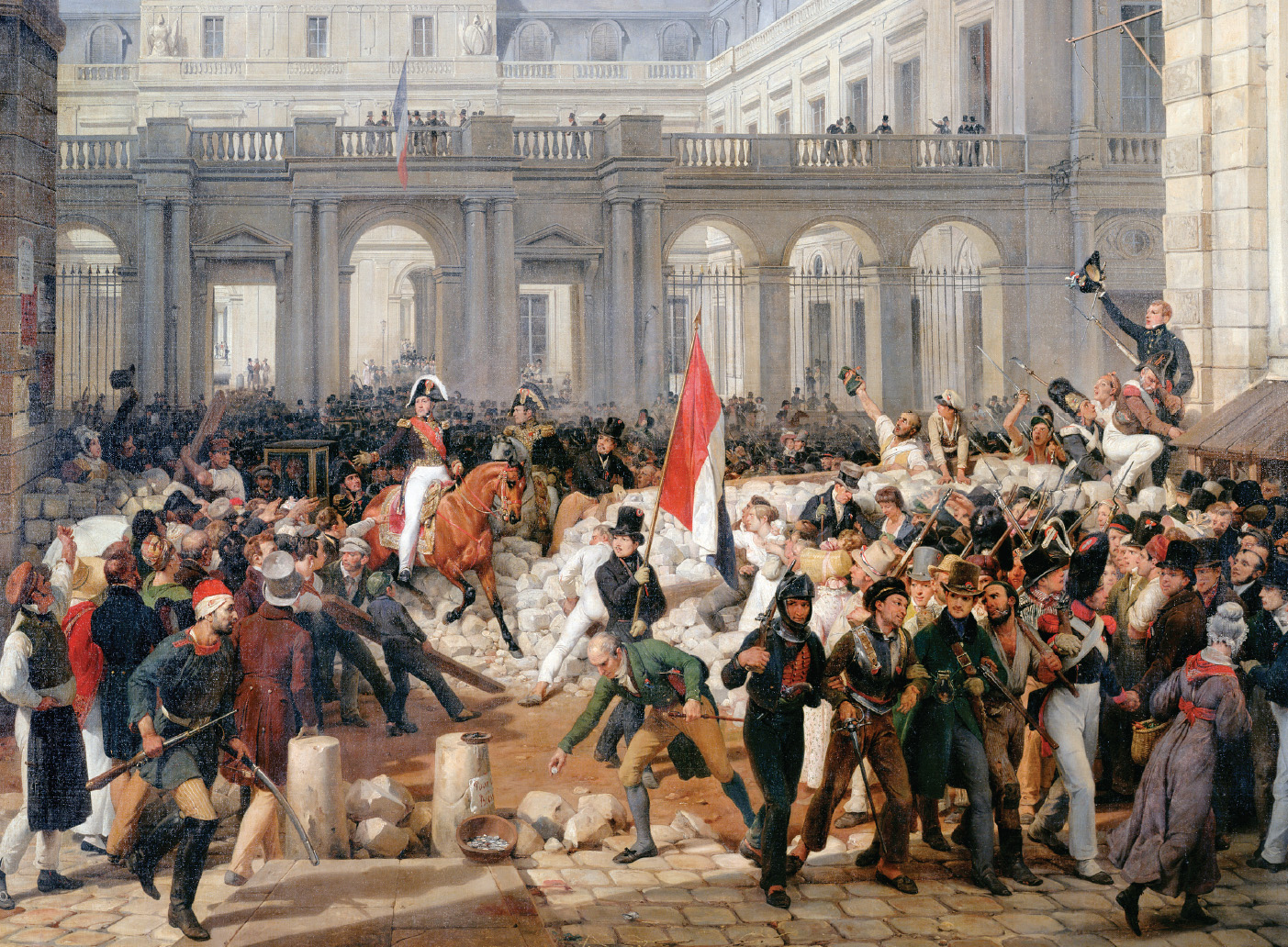A History of Western Society: Printed Page 682
A History of Western Society, Value Edition: Printed Page 687
Ideologies and Upheavals
1815–1850
The momentous economic and political transformation of modern times that began in the late eighteenth century with the “unfinished” revolutions — the Industrial Revolution in England and the political revolution in France — would play out with unpredictable consequences in the first half of the nineteenth century. Attempts to manage the progressive forces associated with the French Revolution led first to a reassertion of conservative political control in continental Europe. Following the leadership of Austrian foreign minister Klemens von Metternich, the aristocratic leaders of the Great Powers sought to stamp out the spread of liberal and democratic reforms.
The political and cultural innovations made possible by the unfinished revolutions proved difficult to contain, however. In politics, powerful new ideologies — liberalism, nationalism, and socialism — emerged to oppose Metternich’s revitalized conservatism. In literature, art, and music, romanticism — an intellectual and artistic movement that challenged the certainties of the Enlightenment and fed the growth of popular nationalism — captured the intensity of the era. A successful revolution in Greece, liberal reform in Great Britain, and popular unrest in France gave voice to ordinary people’s desire for political and social change. All these movements helped launch the great wave of revolutions that swept across Europe in 1848. ■

CHAPTER PREVIEW
How was peace restored and maintained after 1815?
What new ideologies emerged to challenge conservatism?
What were the characteristics of the romantic movement?
How and where was conservatism challenged after 1815?
What were the main causes and results of the revolutions of 1848?
Chronology
| 1790s–1840s | Romantic movement in literature and the arts |
| 1809–1848 | Metternich serves as Austrian foreign minister |
| 1810 | Germaine de Staël publishes On Germany |
| 1815 | Holy Alliance formed; revision of Corn Laws in Britain |
| 1819 | Karlsbad Decrees issued by German Confederation |
| 1820 | Congress of Troppau proclaims the principle of intervention to maintain autocratic regimes |
| 1821 | Austria crushes a liberal revolution in Naples and restores the Sicilian autocracy |
| 1823 | French armies restore the Spanish regime |
| 1830 | Greece wins independence from Ottomans |
| Charles X repudiates the Constitutional Charter; insurrection and collapse of the government follow | |
| Louis Philippe succeeds to the throne and maintains a narrowly liberal regime | |
| 1832 | Reform Bill in Britain |
| 1839 | Louis Blanc publishes Organization of Work |
| 1840 | Pierre-Joseph Proudhon publishes What Is Property? |
| 1845–1851 | Great Famine in Ireland |
| 1847 | Ten Hours Act in Britain |
| 1848 | Revolutions in France, Austria, and Prussia; Marx and Engels publish The Communist Manifesto |